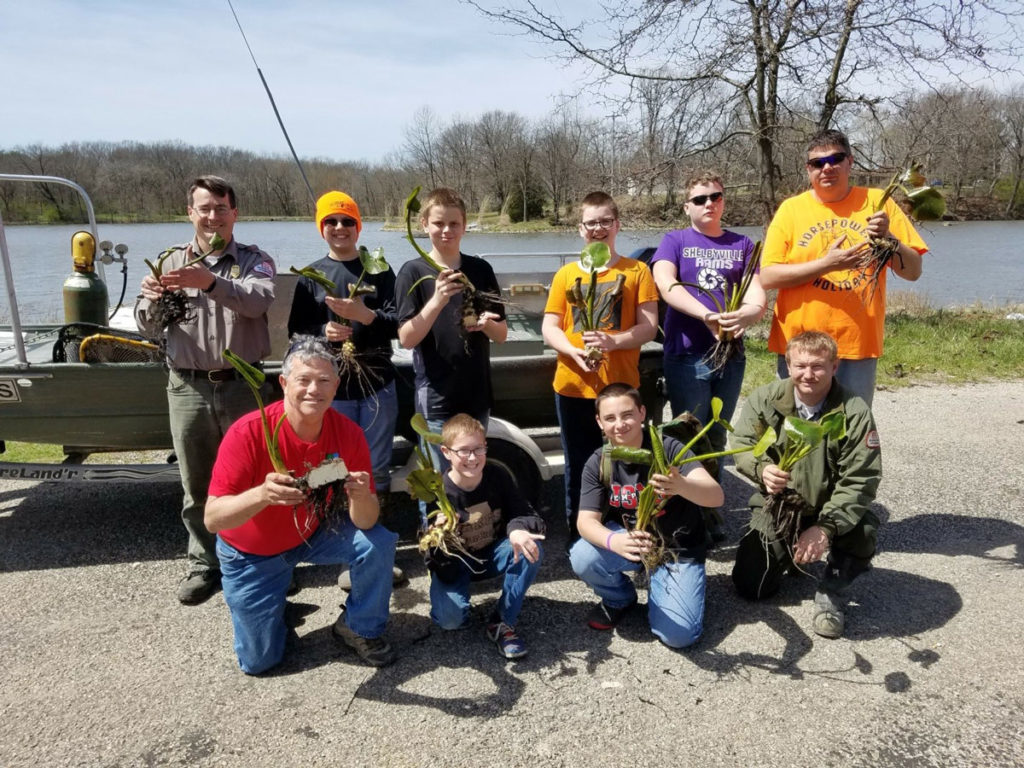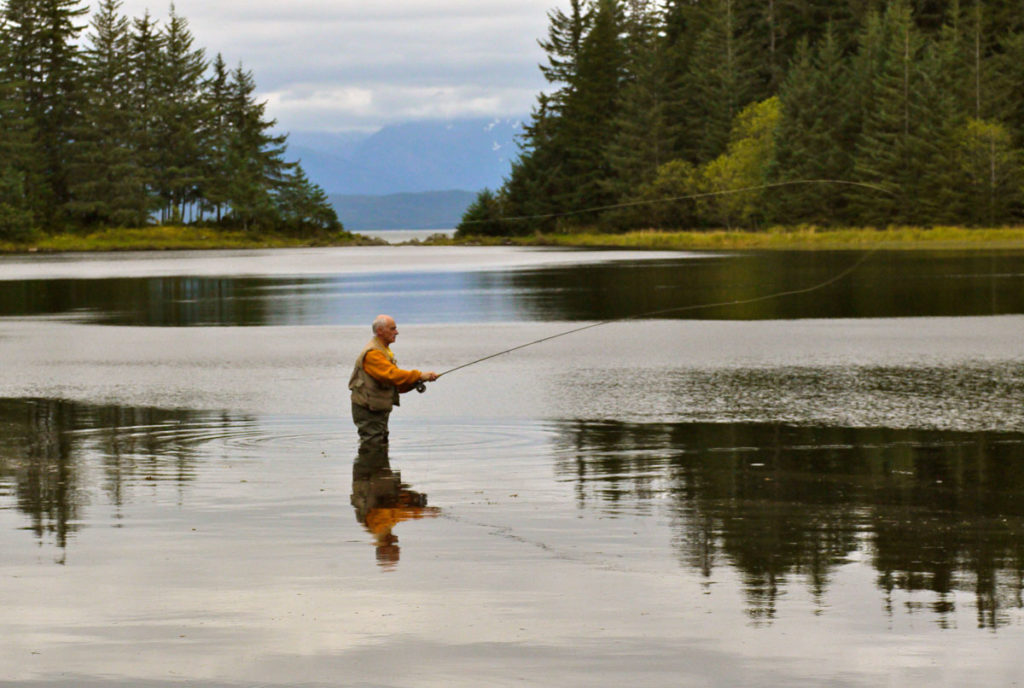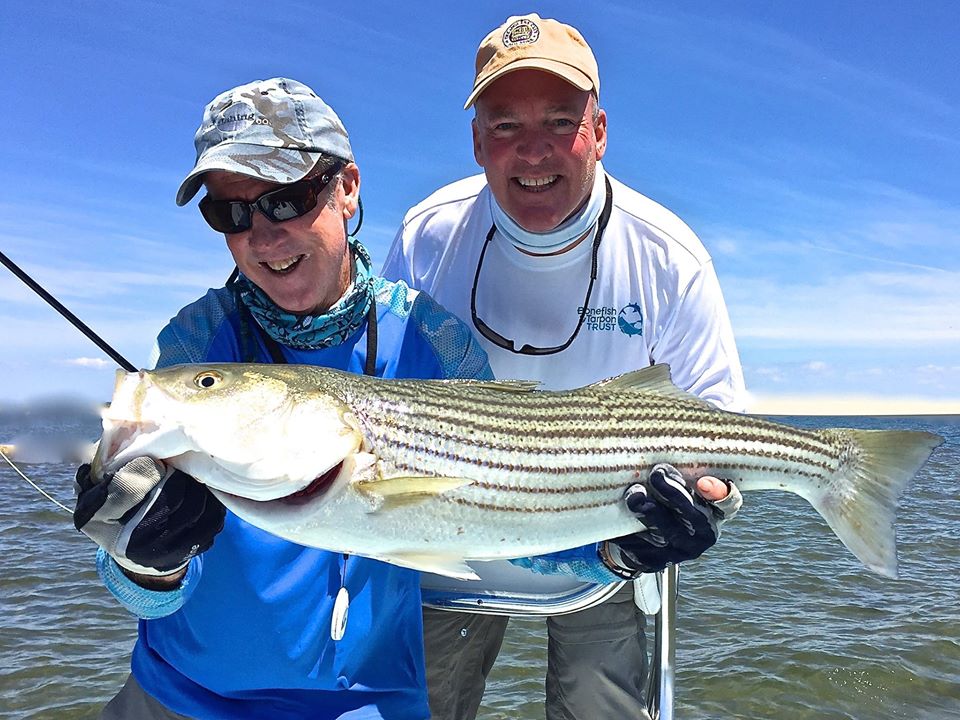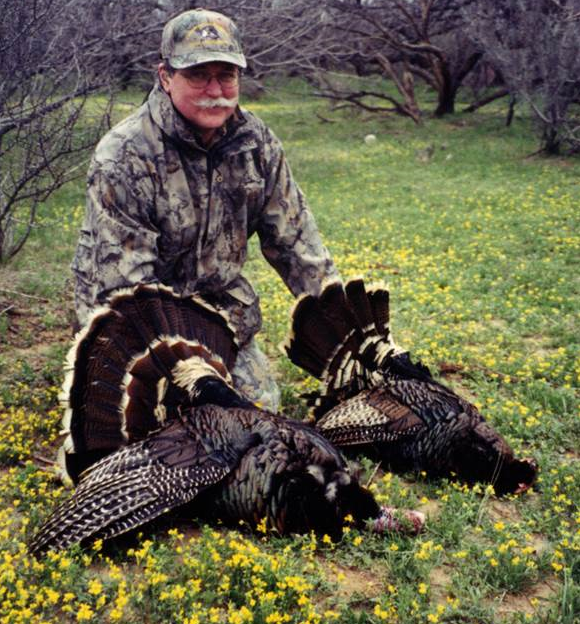27568289822_1d78c02504_k-Photo-by-Bob-Wick-BLM-900-web
Do you have any thoughts on this post?
Lawmakers team up to conserve reef fish in the Gulf
UPDATE: U.S. Senators Bill Cassidy (R-La.) and Doug Jones (D-Ala.) introduced a companion bill on November 21, 2019.
A coalition of recreational fishing and boating organizations is lauding the introduction of the DESCEND Act by Congressmen Garret Graves (R-La.) and Jared Huffman (D-Calif.) The DESCEND Act of 2019, or the “Direct Enhancement of Snapper Conservation and the Economy through Novel Devices Act of 2019,” would require commercial and recreational fishermen to possess a descending device rigged and ready for use or venting tool when fishing for reef fish in Gulf of Mexico federal waters.
The recreational fishing and boating community has long advocated for the use of descending devices to reduce the mortality rate of prized reef fish such as snapper and grouper. When deep-water fish (more than 30 feet) are brought rapidly to the surface, they experience barotrauma—a condition where a buildup of gas pressure in their bodies makes it difficult or impossible to swim back down. If a fisherman releases the fish due to size, season or bag limit restrictions and the fish does not survive, this is a dead discard or wasted fish.
A descending device is a weighted hook, lip clamp, or box that will hold the fish while it is lowered to a sufficient depth to recover from the effects of barotrauma and release the fish. A venting tool is a sharpened, hollow device capable of penetrating the abdomen of a fish in order to release the excess gas pressure in the body cavity when a fish is retrieved from depth.
Possession of descending devices on board is required in other parts of the country, including several West Coast states and, starting next year pending final regulatory approval, in South Atlantic federal waters. However, similar regulatory action in the Gulf of Mexico has been held up due to concerns that such action would make ineligible an impending $30 million project related to barotrauma reduction, funded through the Deepwater Horizon Natural Resource Damage Assessment and Restoration program.
The DESCEND Act would break through this bureaucratic roadblock by both allowing the $30 million project to proceed and requiring possession of descending devices or venting tools.
“Given the economic and cultural importance of fishing in the Gulf of Mexico, we should be doing all we can to ensure the conservation of these fisheries,” said Mike Leonard, vice president of government affairs for the American Sportfishing Association. “Improving the survival of released fish has long been a sportfishing industry priority. We strongly support the DESCEND Act, and appreciate Reps. Graves and Huffman for their continued leadership on marine conservation policy.”
“The huge economic impact of the Gulf of Mexico reef fish fishery depends on an abundance of fish and fishing opportunities. We commend this bipartisan effort led by Congressmen Graves and Huffman for tackling wanton waste of America’s fishery resources,” said Jeff Angers, president of the Center for Sportfishing Policy. “By following simple best practices such as the use of descending devices and venting tools, recreational and commercial fishermen can do a little extra to return alive many more fish to their deep-water homes.”
“Discard mortality and commercial bycatch are significant, hidden drains on our marine resources that must be confronted by all stakeholders and this legislation is a targeted effort that aims to decrease the impact of recreational angling on important species,” said Ted Venker, conservation director for Coastal Conservation Association. “No one likes to throw back a fish, see it float off and know that it’s a wasted fish. Given the availability and effectiveness of descending devices to address one of the main factors impacting the availability of many species, particularly red snapper, this legislation makes sense and hopefully leads to greater awareness of the need to reduce all sources of discard and bycatch mortality.”
“Not only will ensuring that we can return fish to depth and minimize post-release mortality benefit fisheries conservation, it will increase angler access to those fisheries in the long-term,” said Chris Horton, fisheries program director for the Congressional Sportsmen’s Foundation. “Releasing more fish alive today will translate to more fish and more days on the water tomorrow.”
“Expanding the use of descending devices is sound conservation policy that will help ensure the health of fisheries for generations to come,” said Nicole Vasilaros, senior vice president of government and legal affairs for the National Marine Manufacturers Association. “The recreational boating and fishing community thanks Representatives Garret Graves and Jared Huffman for their leadership on this issue and we call on all members of Congress to support the bipartisan DESCEND Act.”
“Recreational anglers are the biggest champions of fish conservation in our country. One of the best ways to ensure survival for reef fish and to enhance conservation and grow the resource is by using descending devices to help fish adjust after being caught in deeper waters and avoid being eaten by predators in the process,” said Chris Macaluso, Center for Marine Fisheries director for the Theodore Roosevelt Conservation Partnership. “We applaud the authors and co-sponsors of this bill for their continued work with recreational fishermen to improve fishery management and resource conservation.”

Top photo by FWC Fish and Wildlife Research Institute via flickr.
For many of us, winter is closing in and our days on the water are numbered—make the most of the off-season by taking action for fish and clean water
While I’m hiking to my favorite trout stream or trailering to the neighborhood boat ramp, I’m almost always focused on the day ahead—imagining the line pinched between my index finger and thumb, the breathless anticipation of watching a fish trail my rig, and the heart-stopping joy that takes over after a successful hook-set.
The future is full of possibilities on the morning of a fishing trip. It’s easy to lose sight of the challenges facing the broader future of fishing in America, and how much influence we have as anglers.
With some seasons winding down and winter closing in, take the energy you’d normally put into planning your next camping trip or day on the water and put it toward securing the future of our fishing opportunities.
Here are three things you can do to help America’s fisheries right now.

There are many threats facing many of our fish habitats, including polluted runoff, coastline degradation, invasive species, aging infrastructure that blocks fish passages, and water mismanagement in places like the Everglades. Often, habitat restoration is too big a job for any one agency—whether state or federal—to address. The National Fish Habitat Partnership was created to tackle these issues with a boots-on-the-ground approach.
One of the country’s most successful conservation programs, this partnership has almost 900 completed programs under its belt and is made up of 20 distinct groups that work across America to bring together state, federal, tribal, and private resources. This approach has enabled partners to boost existing fish populations, improve vast swaths of habitat, and restore rivers to their historic flows.
In Shelbyville, Illinois, for example, the Reservoir Fisheries Habitat Partnership has succeeded in activating a group of 100 volunteers and professional fisheries and reservoir managers to improve existing habitat, stabilize shorelines, and restore native aquatic vegetation.
Jeff Boxrucker, the partnership’s lead coordinator, praised the success of this project and its forward-thinking approach, but stressed the program’s need for additional funding. “We need to demonstrate the positive return on investment of restoration efforts to not only ensure continued funding but to show that we have moved the needle.” His group is not alone.
The National Fish Habitat Partnership program has no permanent funding, but a piece of legislation could change that. Known as the National Fish Habitat Conservation Through Partnerships Act, this bill would secure reliable funding for NFHP through 2023. Your comments could rally lawmakers to move this bill to a vote—show your support now.

In September 2019, the Environmental Protection Agency finalized its plan to roll back clean water protections for 50 percent of America’s wetlands and 60 percent of our stream miles. This announcement was made despite the thousands of public comments made by sportsmen and women in opposition to the agencies rule and the 92 percent of hunters and anglers who would strengthen or maintain current safeguards for clean water—not relax them.
Clean, productive wetlands and headwater streams are important for everyone, but essential for hunters and anglers and the species we love to pursue. These ecosystems enhance water quality, control erosion, provide fish and wildlife habitat, and maintain ecosystem productivity—and all of this supports a robust outdoor recreation economy worth $887 billion.
Together we can make a difference and hold the EPA accountable for jeopardizing healthy habitat and strong fisheries. Join the TRCP’s fight for clean water today and support our efforts to keep the Clean Water Act working for wetlands and trout streams.

Forage fish make up the base of the marine food chain and include species such as menhaden, herring, anchovies, and sardines. A critical food source for predator fish such as tuna and striped bass, these small fish are essential for a healthy ecosystem.
But commercial fishing pressures are sometimes at odds with the needs of our tiniest baitfish and the sportfish that rely on them for food. Fortunately, legislation has been introduced in the U.S. House of Representatives to promote more responsible management and conservation of critical forage fish. In the meantime, we need anglers to take action quickly to prevent further declines in one important Atlantic species.
Menhaden—also known as bunker or pogies—are the preferred forage of striped bass that are suffering on the East Coast, according to recent stock assessments. Menhaden also play a vitally important role as food for red drum, bluefish, tarpon, and summer flounder. But hundreds of metric tons of these fish are removed from the region’s waters every year to be turned into pet food, fish meal, and other products.
The Atlantic States Marine Fisheries Commission will soon implement an ecosystem-based management of menhaden, which will take into account the baitfish’s important role in the broader marine food web. They must also hold commercial fishing operations accountable for harvesting more menhaden than they should—this only robs struggling striped bass of their food source.
Sign our open letter and let the ASMFC know that you support healthy sportfish populations, strong marine ecosystems, and the menhaden fishery.
Top photo by Kent Krebeck
Capitol Hill veteran will work on farm bill conservation policy, chronic wasting disease, forest management, and other rural land issues
 The Theodore Roosevelt Conservation Partnership is proud to welcome Andrew Earl to the staff as director of private lands conservation.
The Theodore Roosevelt Conservation Partnership is proud to welcome Andrew Earl to the staff as director of private lands conservation.
Previously, Earl advised U.S. Senator Mike Crapo on agriculture and natural resource-related issues. With his help over a five-year period, their legislative team succeeded in reforming federal budgeting for wildfire suppression, enacted targeted land management reforms, and led several bipartisan efforts to achieve record appropriations for species and habitat conservation programs.
“Andrew joins us at a critical time, as farm bill conservation programs are being implemented after passage of the new five-year bill and rural America faces new challenges that make these incentives even more relevant to farmers and ranchers who already want to do right by wildlife,” says Whit Fosburgh, the TRCP’s president and CEO. “We’re thrilled to have his expertise and Hill knowledge on the team as we work on chronic wasting disease and forest management, as well.”
Earl is a graduate of the American University School of Public Affairs and a native of upstate New York. Outside the office, he enjoys hiking and camping in the Shenandoah Valley as well as trapshooting, fishing, and cooking.
“TRCP has built a reputation as a purpose-driven organization committed to the type of collaborative policymaking becoming increasingly uncommon in DC,” says Earl. “I could not be more excited to join this dynamic team and work to ensure that the goals of wildlife conservation and sportsmen’s access are accounted for within federal agricultural policy.”
Click here for the full roster of TRCP leadership and staff.
Top photo by Larry McGahey via flickr.
TRCP’s “In the Arena” series highlights the individual voices of hunters and anglers who, as Theodore Roosevelt so famously said, strive valiantly in the worthy cause of conservation
Hometown: Germantown, Tennessee
Occupation: Retired. Chief conservation officer for Ducks Unlimited from 1991 to 2010.
Conservation credentials: Recent winner of the Aldo Leopold Memorial Award, a lifelong wildlife management professional, and a former TRCP Board member.
Growing up in Ohio, Alan Wentz inherited from his family and community a fascination with fish and wildlife that gave shape to his private and professional life. After earning several degrees en route to a doctorate in wildlife management from the University of Michigan, Wentz spent the following decades working on conservation policy at the state and national level. A former president of the Wildlife Society, he recently received the Aldo Leopold Memorial Award, the highest honor given annually by that organization to an individual who has made significant contributions to the field of wildlife.
Here is his story.

My younger brother and I were both introduced to hunting and fishing by our father, who wanted to be sure we knew how to handle firearms. Like many others of that generation, his experiences in WWII led him to ensure that his children had outdoor skills. And a long association with the Boy Scouts—including serving on camp staff for more than a decade—gave me a grounded understanding of nature, camping, archery, hiking, firearms, and more.
I was also lucky enough to have several hunting and fishing mentors in our neighborhood, including one who taught me about trapping and another who was a fur buyer. The lady who lived next door was retired and took me fishing all over the county. A classmate’s father, who operated his own outdoor shop selling mostly fishing gear in a converted garage, taught me about tying flies.
More than anything else in my life, I have been most interested in conservation and the outdoors. Even as a child I was allowed to wander around the fields and woodlots near our farmstead. Observing the plants and animals and how people interact with the outdoors has always fascinated me. I devoured anything I could find in our local library on hunting, fishing, trapping, conservation, forestry, or any related topics, and enjoyed reading outdoor magazines such as Fur, Fish, and Game.
It kept me busy at all hours.
From the time I met the local game warden, I knew I was destined to work in conservation. This was in spite of my high school counselors, who laughed off the idea, and my adviser as an undergraduate at Ohio State University. After initially being surprised that I tried to declare a major in conservation as a first-term freshman, he made me pass a special written test to show him I was serious. He finally understood that I really meant to build a career for myself in conservation. I never wavered from that idea, and it seems to have worked out well.

Two of my fondest memories from the outdoors both took place with family. The first was on one of our several trips to canoe and fish on a string of wilderness lakes in Ontario during the early 1960s. We caught several large northern pike, and my brother hooked and nearly landed a very large fish that has no doubt grown larger every time we have told the story—it was a real monster!
The second was when my brother introduced me to turkey hunting in Virginia. He called in a beautiful bird that we were able to watch coming through the woods. It was wary and circled us seemingly unsure of what we were. I tracked the bird with my shotgun for what seemed like hours (but was likely only minutes) and finally shot it.
It had looked like a large black barrel rolling down the hillside toward us, and I was so fascinated by it and the experience that I almost forgot to pull the trigger! My brother said the suspense was almost more than he could stand! It made me an addict for turkey hunting, and I’ve indulged for several decades.
Over the years, I’ve been fortunate enough to have hunted all sorts of game across North America, from Canada to Mexico and coast to coast, as well as overseas from New Zealand to Sweden. But of all the available opportunities, waterfowl hunting in eastern South Dakota or upland bird hunting on the prairies of Kansas hold a special attraction for me.
There is nothing like hunting the wind-swept prairies and public lands of our Great Plains, a landscape that I find endlessly fascinating. It can feel isolated and pristine and game can be abundant, even today and in spite of agricultural conversion and energy development. You can discover masses of upland game birds in these places and face weather that will literally steal your breath with the wind, cold, ice and snow, and blazing sun.
It is a truly remarkable experience to bend down to accept a prairie chicken from the mouth of your own Labrador retriever or to witness a 150-inch whitetail buck stand up and run away after you nearly stepped on it without knowing it was there. The abundance of life on the prairies seems almost a contradiction given how barren it can appear nearly any time of the year.

Looking to the future, we face plenty of conservation challenges, foremost among them getting people to understand that climate change is on us and that it is going to affect every aspect of our lives. These changes are going to mean major modifications to all natural resources and how humans depend on them for survival.
The general public tends to be extraordinarily ignorant of wildlife, conservation, and the base of natural wealth that sustains us all. I doubt we can overcome that ignorance and get people to accept that they must change how they live. It is the challenge of the future and one we must win.
I believe the TRCP fills a unique niche in conservation, and its outlook and philosophy is sorely needed to help us organize all the other groups that have more specific missions, while also trying to organize unaffiliated sportsmen and women. The community of outdoor groups is diverse and splintered with lots of opinions and goals. TRCP is there to help them and others understand what is at risk if we continue to talk to ourselves—or, worse yet, fight silly internal battles that are unimportant in the big picture.
With conservation facing some of its toughest challenges in our history, we have to make our conservation missions relevant and known to decision makers, young people, and voters across all nations before it is too late. There is precious little time left, and this vision must be brought to light for all to see and act upon.
An additional item I appreciate about the TRCP is the focus on access. I have been lucky enough for most of my life to be able to access both public and private lands without too much worry. However I have developed a neuro-muscular problem that has left me in a power wheelchair, and access is now a critical issue for me. It has made me aware of how many people face similar challenges.
Hopefully, access issues will be a focus of public agencies and other groups, which will greatly benefit many sportsmen and women across the country.
Top photo by Dale Humburg.
TRCP has partnered with Afuera Coffee Co. to further our commitment to conservation. $4 from each bag is donated to the TRCP, to help continue our efforts of safeguarding critical habitats, productive hunting grounds, and favorite fishing holes for future generations.
Learn More

For every $1 million invested in conservation efforts 17.4 jobs are created. As Congress drafts infrastructure legislation, let's urge lawmakers to put Americans back to work by building more resilient communities, restoring habitat, and sustainably managing our water resources.